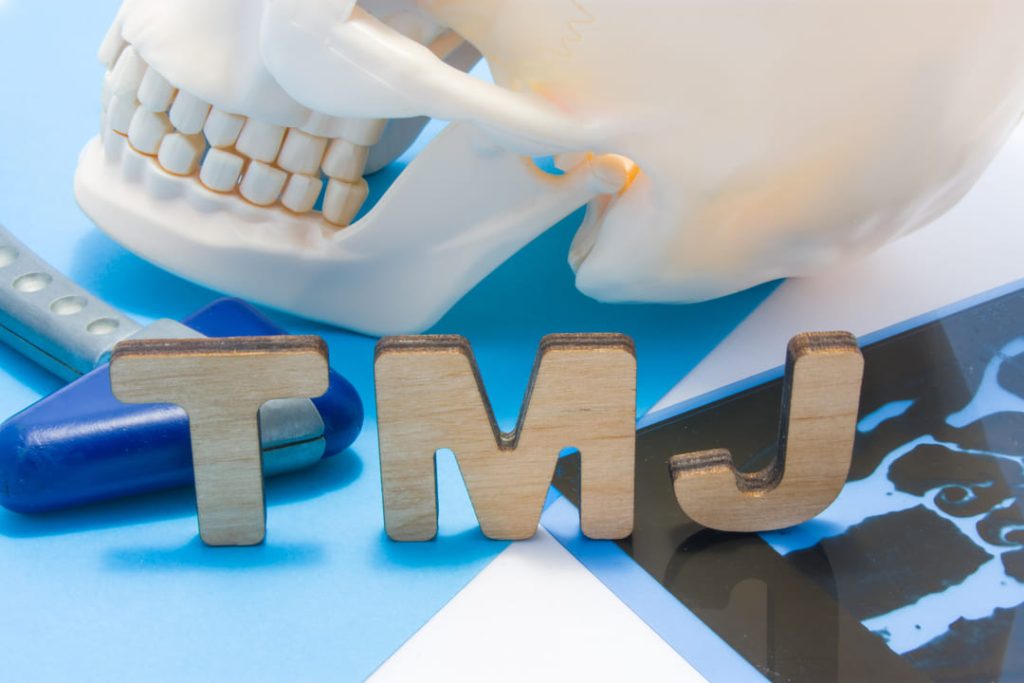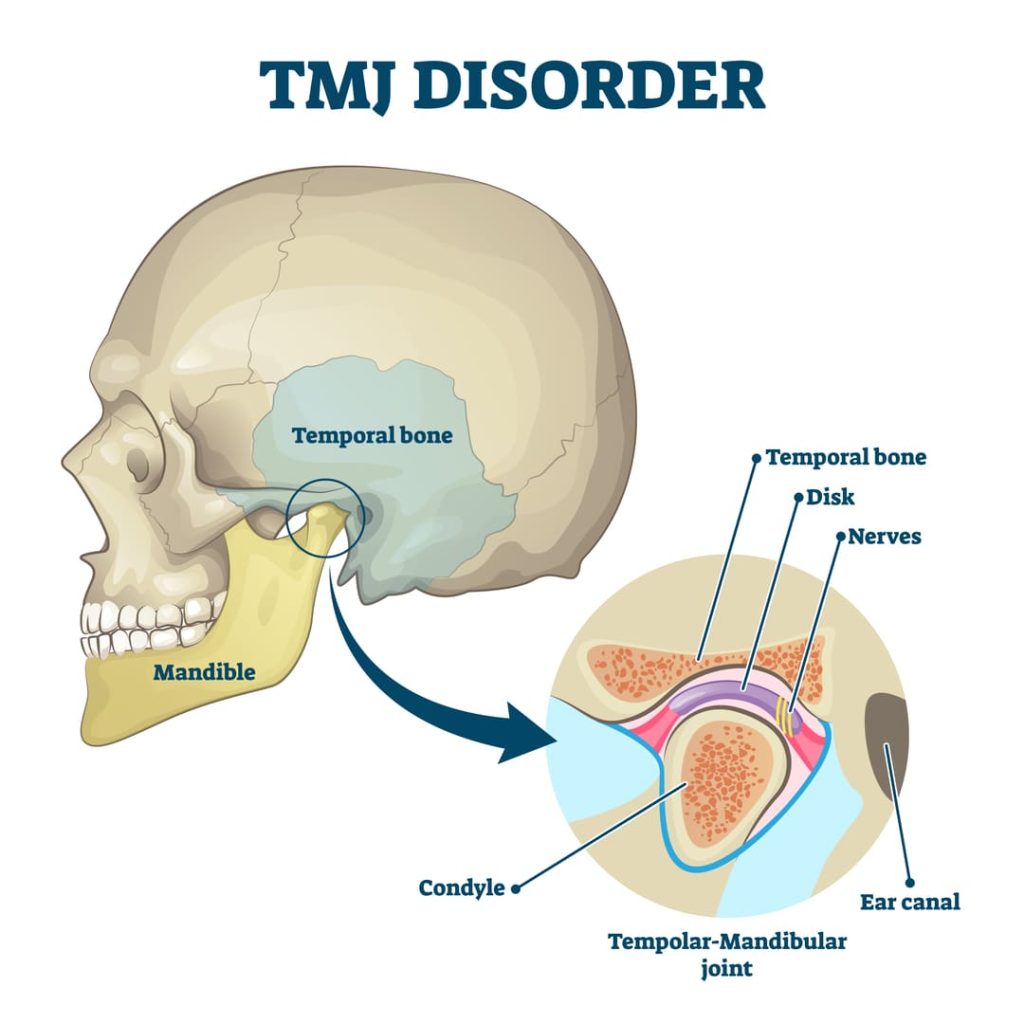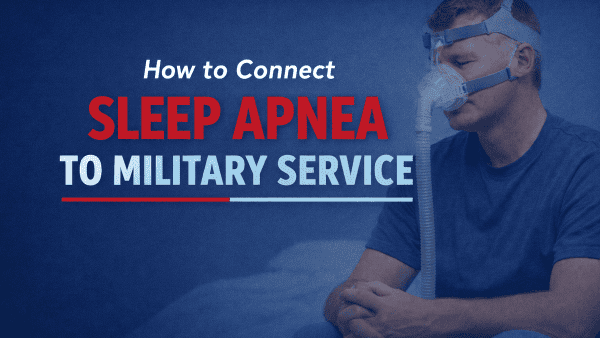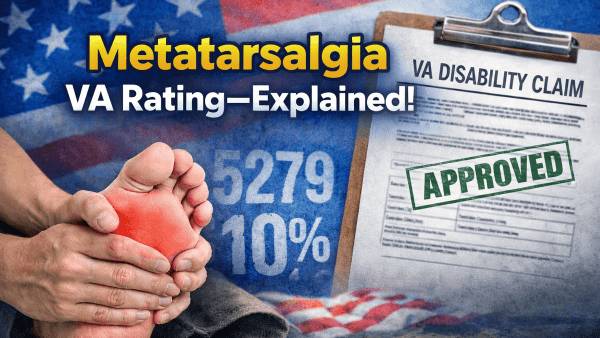Looking for Expert-Level VA Claim Answers?📱Call Us Now! 737-295-2226
Veterans suffering from temporomandibular joint (TMJ) disorder may be eligible for VA disability compensation. However, filing a claim for your TMJ VA rating can be a complex and challenging process.
One mistake or misstep could result in a denied claim or a lower rating than you deserve.
We’re here to help you avoid those mistakes and get the benefits you deserve the first time you file. You could be rated at up to 50% for TMJ.
Let’s dive into the top four mistakes veterans make when filing a claim for a TMJ VA rating.
Table of Contents
Summary of Key Points
- TMJ is a recognized VA disability (DC 9905) rated from 10% to 50% based on jaw opening measurements and dietary restrictions.
- Top 4 claim-killing mistakes: no timely diagnosis, incomplete (non-FDC) filing, misunderstanding VA’s rating criteria, and missing secondary service connection (e.g., PTSD-triggered teeth grinding).
- Fully Developed Claims (FDCs) can speed up decisions—just submit your diagnosis, nexus letter, and current symptom documentation up front.
- Secondary claims (TMJ due to PTSD/bruxism) are often easier to win if you already have service-connected PTSD and can show “more likely than not” causation.

What is TMJ?
TMJ, or temporomandibular joint disorder, is a disorder that affects your jawbone and the muscles around it.
Your temporomandibular joint is the joint that connects your jawbone to your skull, and it’s used every time you talk, chew, or swallow.
If you’re dealing with this condition, it can severely impact your quality of life, as we use our mouths a lot throughout the day.
The disorder can cause a variety of symptoms, such as:
- Jaw pain during chewing or talking
- Inflammation around your jaw
- Clicking or popping sounds when you open and close your mouth
- Difficulty opening your mouth wide
- Difficulty swallowing
- A locked jaw
- Headaches
- Earaches
The pain and discomfort can range from mild to severe and can even impact your ability to eat or speak normally.
Is TMJ a disability?
Yes, the VA recognizes TMJ as a disability that impacts veterans. You could receive a TMJ VA rating from 10% to 50% depending on your symptoms.
What causes TMJ?
For veterans, there are several potential causes of TMJ:
Physical Injury
In some cases, it may result from a direct injury to the jaw, head, or neck during military service, such as a blast or other traumatic event.
PTSD (from Teeth Grinding)
Additionally, the stress of military service can lead to teeth grinding, a common cause of TMJ. Certain medical conditions that are more common among veterans, such as PTSD, can also contribute to the development of TMJ.
Arthritis
Arthritis, which can be caused by joint wear and tear over time, is another potential cause of TMJ.
Let’s break down the four mistakes veterans make when filing for a TMJ VA disability rating.
Looking to File for TMJ? Here Are 4 Mistakes to Avoid…

Mistake #1: Not Seeking Treatment or Getting a Diagnosis for a TMJ VA Rating
One of the most common mistakes veterans make when filing a claim for their TMJ VA rating is not seeking medical treatment or a proper diagnosis. If you experience pain in your jaw during service, make sure to get seen by a provider before you separate or retire.
With medical evidence to support your claim, proving that you have the condition will be easy.
Make sure to see a qualified medical professional, such as a dentist, oral surgeon, or an ear, nose, and throat (ENT) doctor. These professionals can evaluate your symptoms and provide an official diagnosis.
In addition to receiving treatment for your TMJ, this will help establish a connection between your condition and your military service, which is necessary to receive disability compensation.
Remember to keep copies of all medical records and documentation related to your TMJ; this will be vital evidence to submit with your claim.

Mistake #2: Not Completing a Fully Developed Claim for a TMJ Disability Rating
If you file a Fully Developed Claim (FDC) for your TMJ VA rating, your claim will process much quicker than other claims. All an FDC means is that you’ve given the VA all the evidence they need to process your claim, reducing the time it takes for the VA to gather evidence.
You’ll probably get a VA rating decision on your TMJ within three to four months of your initial filing date.
To submit a Fully Developed Claim for your TMJ, make sure to include these three things:
- A diagnosis of your TMJ from a qualified doctor
- A link, or nexus, between your service and your TMJ showing that your service caused or worsened your TMJ
- Current symptoms that you’re experiencing that meet the VA’s rating threshold (more on this below)
Once you’ve gathered your evidence, including a nexus letter, you can start your VA claim online, via mail, or in person at your local regional VA office. Learn more about how to file your VA claim for TMJ here.
Mistake #3: Not Learning How the VA Rates TMJ
Understanding how the VA rates TMJ is crucial to ensuring you get the highest rating possible.
The VA rates TMJ under Diagnostic Code 9905 at 10%, 20%, 30%, 40%, and 50%. Factors that impact this rating include how wide you can open your mouth and the types of foods you can eat.
Interincisal Movement and Your TMJ VA Rating
The VA uses a system to measure interincisal movement (IR), or how much you can open your jaw up and down. This is measured in millimeters, and the amount of movement you have will determine your rating. Your ability to open your jaw must be severely limited to earn a rating.
The Types of Food You Can Eat
The type of food you can eat also impacts your TMJ VA rating. The VA has three separate categories of foods they consider for this rating: everyday foods, mechanically altered foods (or foods that have been blended, chopped, etc.), and liquid foods. You need to have a doctor or dentist write in your medical records that you’re on this diet for the VA to acknowledge it (just telling a C&P examiner isn’t enough)
You only need to meet one criterion to be rated at each level:
50% TMJ VA Rating
- You can only open your jaw from 0 to 10 mm and have dietary restrictions.
40% TMJ VA Rating
- You can only open your jaw from 0 to 10 mm but have no dietary restrictions.
- You can only open your jaw from 11 to 20 mm and have some dietary restrictions.
- You can only open your jaw from 21 to 29 mm and have a liquid diet.
30% TMJ VA Rating
- You can only open your jaw from 11 to 20 mm but have no dietary restrictions.
- You can only open your jaw from 21 to 29 mm and have some dietary restrictions on soft foods.
- You can only open your jaw from 30 to 34 mm and have a liquid diet.
20% TMJ VA Rating
- You can only open your jaw from 21 to 29 mm but have no dietary restrictions.
- You can only open your jaw from 30 to 34 mm and have dietary restrictions on soft foods.
10% TMJ VA Rating
- You can only open your jaw from 30 to 34 mm but have no dietary restrictions.
- You can only move your jaw from side to side from 0 to 4 mm.
Using the VA’s painful motion rule, you will likely qualify for a 10% TMJ VA rating.

Mistake #4: Not Filing for TMJ Secondary to PTSD if you Suffer from Teeth Grinding
Teeth grinding, or bruxism, is a common symptom of PTSD. Over time, the stress this causes can significantly damage the teeth, jaw, and muscles of the head and neck. Over time, this can lead to the development of TMJ.
In addition to teeth grinding, PTSD can increase muscle tension and anxiety, exacerbating TMJ symptoms. Stress and anxiety can cause the jaw muscles to become tight and tense, leading to pain, stiffness, and difficulty opening and closing the mouth.
Furthermore, PTSD can cause changes in the way the brain processes pain signals, leading to an increased sensitivity to pain. This can make TMJ symptoms feel more severe and difficult to manage.
If you suffer from PTSD and TMJ, you can file a claim for TMJ secondary to PTSD to ensure that you receive the full compensation and benefits you deserve. If your PTSD is already service-connected, getting a VA rating for TMJ will be easier if you can show (through medical records) that your PTSD led to your TMJ.
All you have to do here is show that your PTSD was more likely than not what led to your TMJ.
Filing for TMJ VA Disability
Avoiding these mistakes can increase your chances of receiving the disability compensation you deserve. Make sure you take the time to gather your evidence upfront so you can win your TMJ VA rating claim and access all the benefits and resources you earned.
Conclusion
Navigating a TMJ VA claim doesn’t have to feel like an uphill battle. By securing an early diagnosis, submitting a fully developed claim with all your medical evidence, understanding exactly how the VA measures jaw function, and (if applicable) pursuing a secondary connection through PTSD-related teeth grinding, you dramatically increase your odds of earning up to a 50% VA disability rating.
Remember, every piece of documentation, from treatment notes to your nexus letter, builds the bridge between your service and your symptoms.
NEED MORE ASSISTANCE? We’ve Got Your SIX!

Most veterans are underrated for their disabilities and, therefore, not getting their due compensation. At VA Claims Insider, we help you understand and take control of the claims process, so you can get the rating and compensation you’re owed by law.
Our process takes the guesswork out of filing a VA disability claim and supports you every step of the way in building a fully-developed claim (FDC)—so you can get the rating you deserve in less time!
If you’ve filed your VA disability claim and have been denied or have received a low rating—or you’re unsure how to get started—reach out to us! Take advantage of a VA Claim Discovery Call. Learn what you’ve been missing—so you can FINALLY get the disability rating and compensation YOU DESERVE!
FAQs
What is the VA rating for TMJ?
The VA rates TMJ under Diagnostic Code 9905 at 10%, 20%, 30%, 40%, and 50%.
Can I get VA disability for TMJ without a formal diagnosis?
No. To receive a VA rating for TMJ, you must have a current, documented diagnosis from a qualified provider (for example, a dentist, oral surgeon, or ENT specialist). Without that formal diagnosis in your medical records, the VA will not rate your condition—even if you report symptoms during your C&P exam.
How fast can I expect a decision if I file a Fully Developed Claim (FDC)?
If you submit an FDC—including your TMJ diagnosis, a nexus letter, and evidence of your symptoms—the average turnaround time for a decision is 3–4 months. This is significantly quicker than a standard claim, where the VA must gather records on your behalf and can take 9–12 months or more.
What medical tests does the VA use to rate TMJ?
The VA measures interincisal opening (how many millimeters you can open your jaw) and notes any dietary restrictions (everyday foods vs. mechanically altered or liquid diets). In some cases, they may also consider reports of painful motion. You’ll likely have to demonstrate these limits during your C&P exam—and have them documented in your treatment records—to qualify for each rating level.
Can I claim TMJ secondary to PTSD or other service-connected conditions?
Yes. If you suffer from service-connected PTSD (or another condition) that causes teeth grinding or muscle tension leading to TMJ, you can file for secondary service connection. You’ll need a medical nexus letter showing it is “at least as likely as not” that your PTSD exacerbated or caused your TMJ.
Author

Trisha Penrod
Trisha Penrod is a former active-duty Air Force officer. As an Intelligence Officer, she led teams of analysts to apply advanced analytic skills to identify, assess, and report potential threats to U.S. forces.
Trisha attended the U.S. Air Force Academy and holds an MBA from Webster University. After receiving an honorable discharge in 2018, Trisha worked as a growth marketer and utilizes her analytic skills to help others accomplish their business goals.



